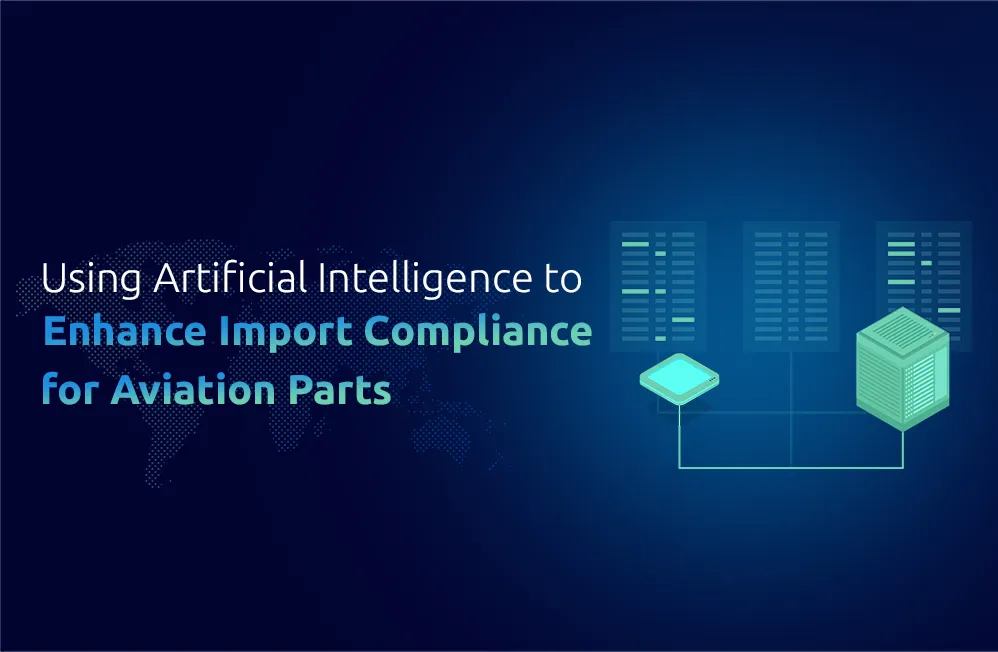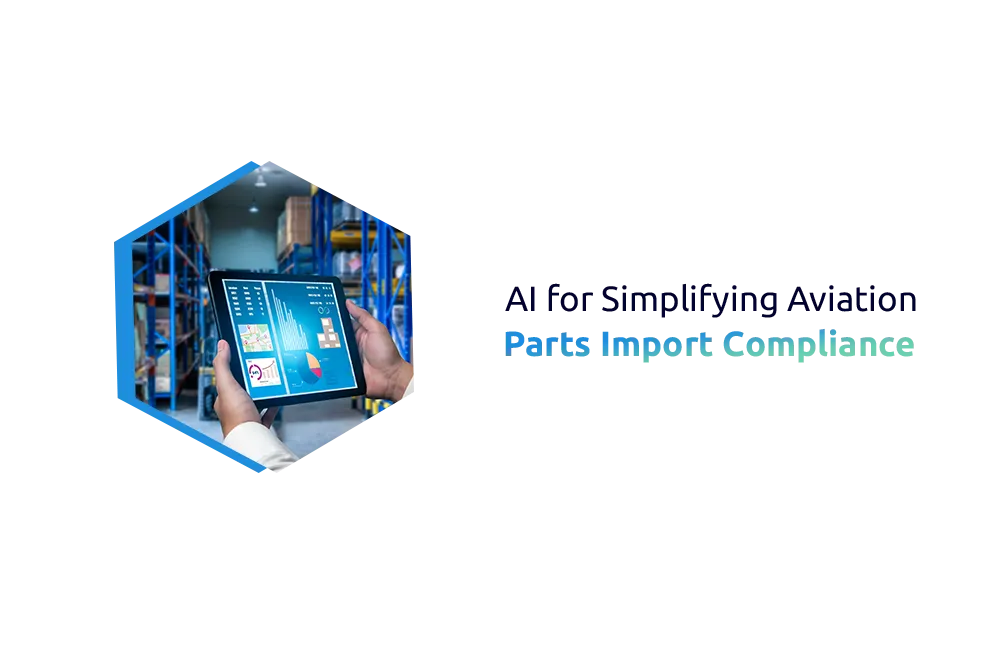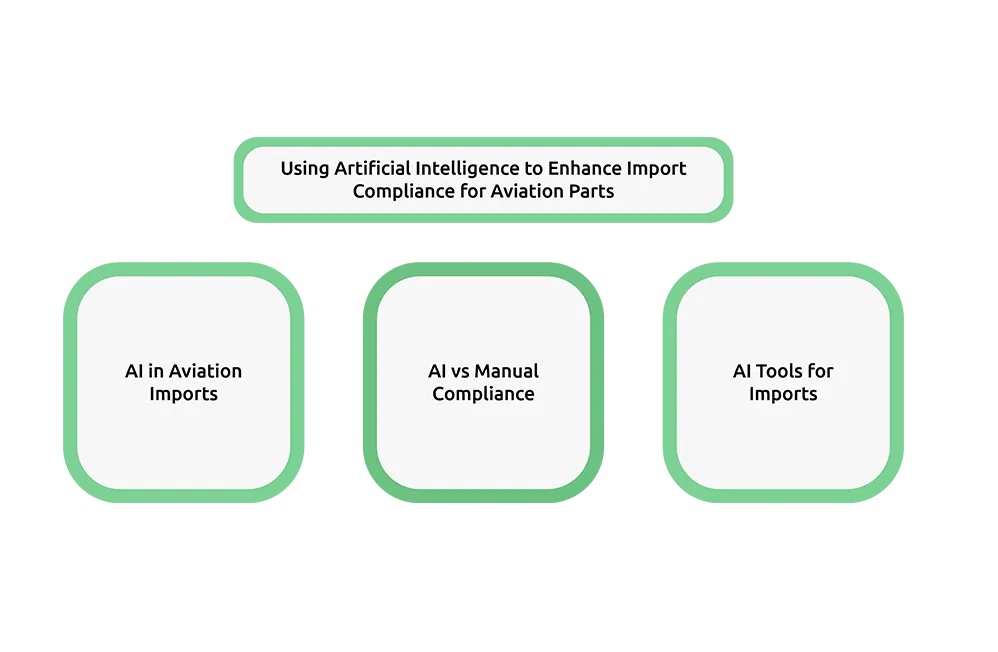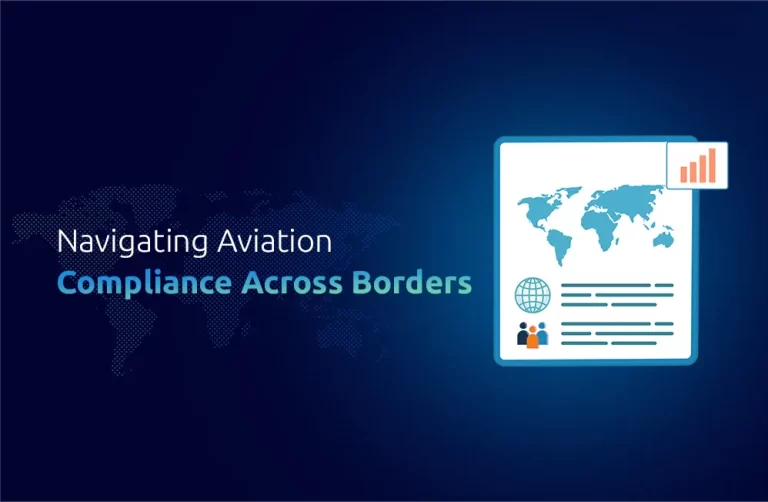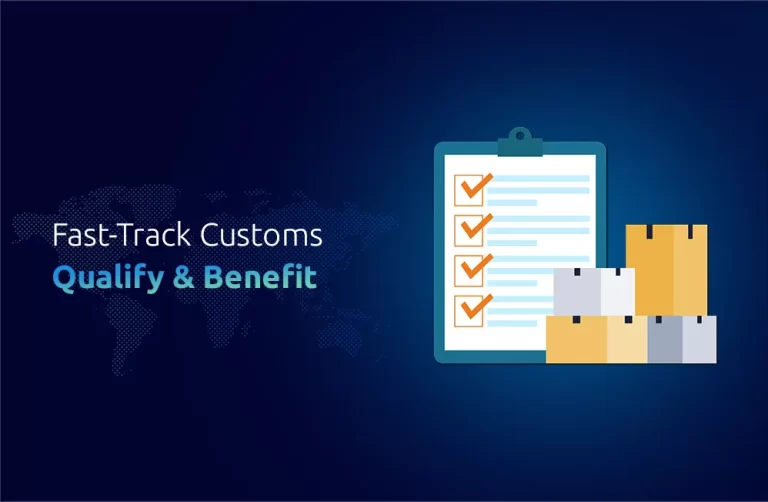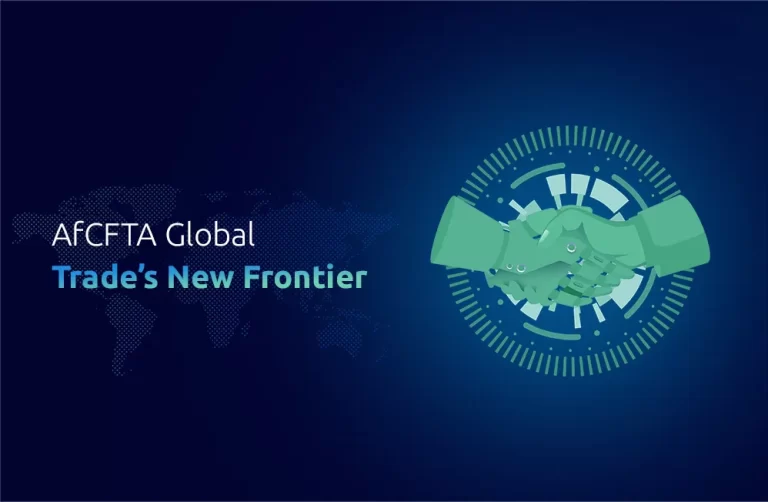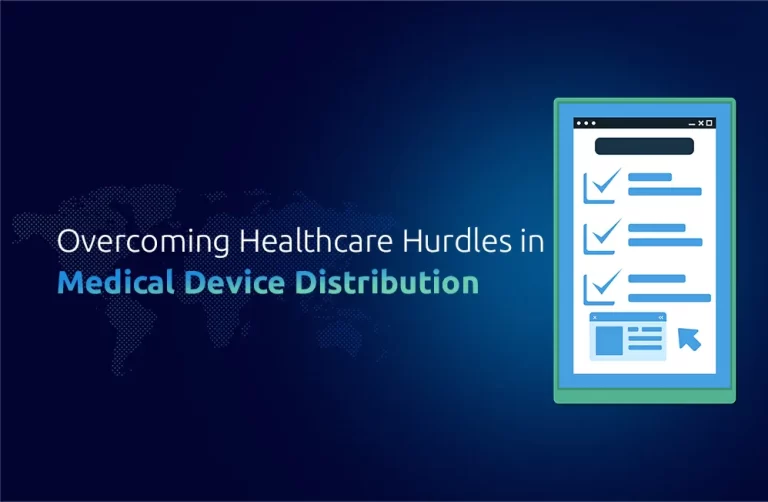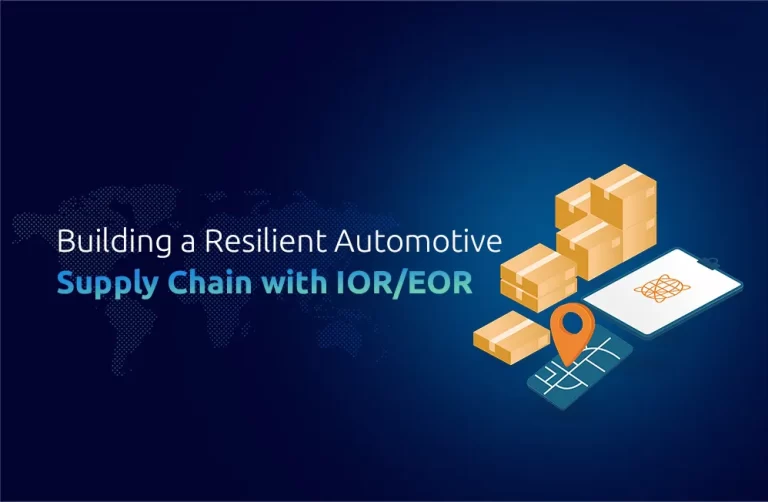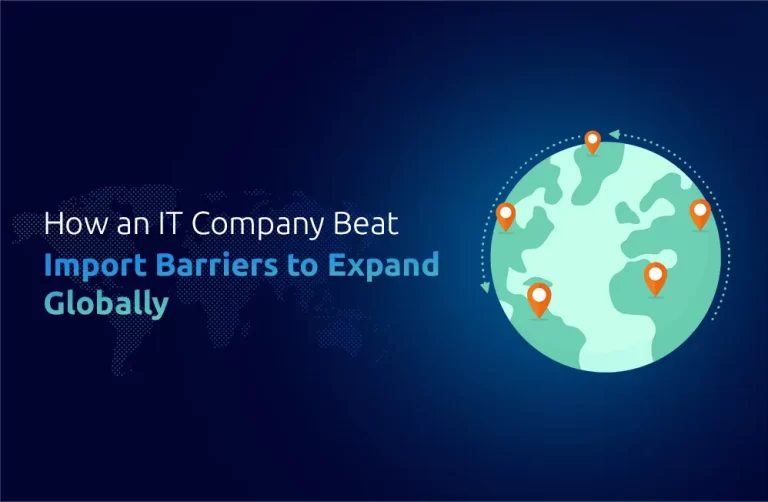Insight
Compliance with international trade rules has never been more essential, particularly in the aviation sector. Import compliance remains one of the biggest headaches in aviation parts procurement, but AI may offer relief by eliminating human error when automating compliance runs and speeding up clearance procedures, helping ensure aviation businesses meet all regulatory requirements.
How AI Improves Import Compliance?
Artificial Intelligence offers powerful solutions to these challenges by automating and improving various aspects of import compliance. Here’s how:
Automated Classification of Aviation Parts
Correct classification of goods using Harmonized Tariff Systems codes or Harmonized Tariff Schedules is one of the more complex aspects of import compliance, determining duty rates, trade agreements eligibility, and customs clearance processes.
AI-powered systems can analyze product specifications and assign correct HS codes automatically for aviation parts, greatly reducing human error risk. Leveraging machine learning algorithms, AI can continuously improve classification accuracy based on historical data and regulatory updates, guaranteeing compliance with ever-evolving standards.
Simplified Customs Documentation and Paperwork
Customs documentation is another area where AI excels, producing invoices, packing lists, certificates of origin, and regulatory filings automatically using tools developed with AI technology. These tools often integrate with government databases so all the data entered aligns with current regulations; this ensures faster processing with fewer mistakes or delays when clearing aviation parts through customs.
Risk Detection & Mitigation Strategies
Artificial Intelligence can analyze large volumes of import data and detect compliance risks. By analyzing trade patterns, regulatory changes, and past customs audits, AI can easily identify high-risk shipments that require closer examination – for instance, shipments that may contain restricted aviation parts or do not adhere to safety standards. By proactively identifying risks early on, companies can take corrective steps before any issues arise and avoid penalties altogether.
Real-Time Updates on Regulatory Changes
The regulatory landscape surrounding aviation part importation is always shifting, from new laws and agreements to shifting import/export restrictions and shifting import/export regulations. AI-powered systems can keep up with this constant flux and adjust compliance workflows accordingly to avoid potential issues while guaranteeing full compliance with their import operations.
Optimizing Import and Export Costs
AI can aid companies in streamlining the supply chains by suggesting cost-effective routes and times to import or export aviation parts. By considering tariffs, taxes, shipping times, and route efficiency metrics, AI can suggest an optimal logistics plan that helps reduce unnecessary expenses while staying within budget when managing high-value goods such as aviation components.
AI For Customs Compliance:
Automating Import/Export Processing In 2024, AI-powered solutions for the import/export industry have revolutionized customs compliance, providing businesses with a smarter, more effective solution to navigate complexities in global trade operations easily. AI-powered trade compliance solutions can help companies automate the category of goods, simplify documentation methods, and reduce the risks linked with international trade. This allows businesses to use artificial intelligence for customs compliance to ensure that their imports and exports comply with regulations, reduce the potential of human error, and expedite clearance processes while improving the quality and speed of global trade operations.
Real-World Applications of Artificial Intelligence in Aviation Parts Import Compliance
Aviation companies have already started adopting AI to streamline import compliance. AI-powered tools such as smart customs management platforms and automated trade compliance solutions are increasingly commonplace across aviation supply chains, for instance:
Automated Document Verification: AI tools can verify that customs documents meet all necessary standards before being submitted to customs authorities for submission.
Predictive Analytics for Risk Evaluation: Artificial intelligence can analyze historical trade data to predict compliance issues that arise, allowing businesses to take preemptive steps against compliance issues before they arise.
Notification of Regulatory Updates: Certain AI platforms provide real-time notifications regarding regulatory updates that could impact import processes, helping businesses stay compliant while requiring minimal manual oversight.
Benefits of AI-Driven Compliance Management Systems
AI offers significant advantages to aviation import compliance by automating difficult tasks such as data entry, HS code classification, and tariff calculations – thus minimizing human error risk while improving compliance activities. AI’s automation streamlines the entire process, expediting document preparation & submission for faster customs clearance and delivery – crucially important when dealing with time-sensitive aviation parts. AI can identify potential risks early, enabling businesses to take proactive measures and avoid penalties, delays, or regulatory violations. AI also cuts manual labor costs while optimizing import/export logistics through predictive analytics for cost-effective operations.
Conclusion
AI is revolutionizing how aviation businesses manage import compliance. Through automating tasks such as HS code classification, customs documentation, and risk detection, AI not only saves time & reduces errors but also guarantees aviation parts reach the location smoothly and on time. Companies looking to enhance their import processes could benefit greatly by adopting AI-powered solutions like those provided by One Union Solutions; we specialize in efficient logistics and compliance solutions that streamline international trade operations while mitigating risks and cutting costs.
Did You Know,
Customs duties on aviation parts can range from 5% to 25% depending on the country & part, emphasizing the significance of accurate HS classification.
FAQ’s
- How can AI assist in classifying aviation parts for import compliance?
Ans: AI uses machine learning algorithms to automatically assign the appropriate HS codes to aviation parts based on product specifications, eliminating human error and increasing classification accuracy.
- What are the primary advantages of AI for import compliance?
Ans: Artificial Intelligence can reduce human error, speed up processing times, improve risk management, and decrease operational costs while providing more effective compliance processes.
- How can AI detect risks in import shipments?
Ans: AI utilizes trade data, regulatory changes, and past audits to detect patterns that indicate compliance risks for businesses – helping businesses address potential issues before they arise.
- What role does AI play in tracking regulatory changes?
Ans: Artificial Intelligence (AI) informs businesses about regulatory updates in multiple countries that could impede import processes.
- How does AI enhance cost efficiency in importing aviation parts?
Ans: Artificial intelligence can assist with optimizing shipping routes, forecasting costs, and analyzing tariffs, taxes, and customs duties to facilitate cost-effective imports while meeting regulations.

